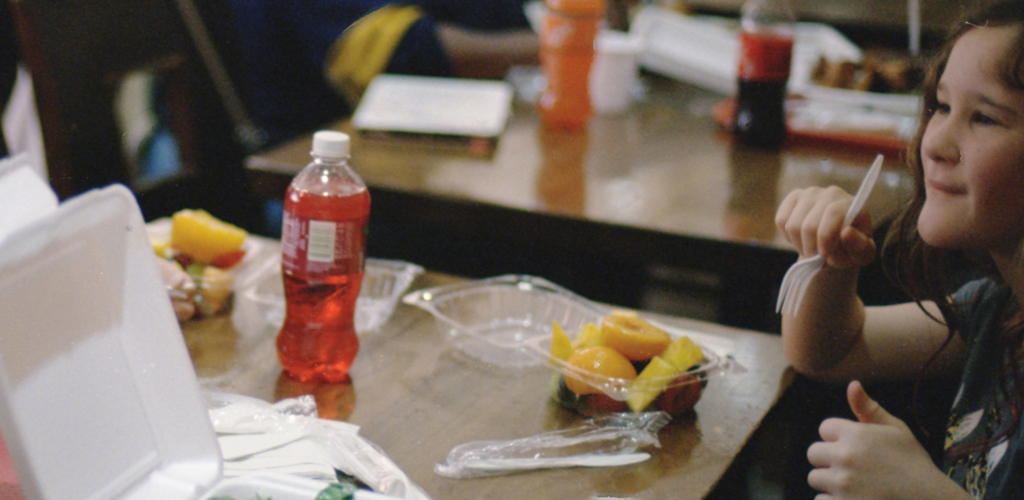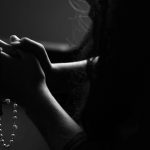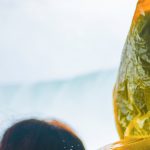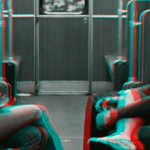In the school cafeteria at lunchtime, hungry mouths of lickspittle children lick salty chip-fingers and belch like milk-drunk babies in each other’s faces.
Douglas’s table is empty, his belly too. He stares into the space between the formica tabletop and the linoleum floor, tries to disappear. The other kids call him names, they avoid him like a disease, like a scabrous rodent. In his hand: a paperclip, uncurled, becomes a tiny knife. Beneath the worn-out woollen sleeve of his jumper, he drags the point across his skin — dig, dig, dig. The pain blocks out the bad thoughts — Mum’s sobbing face when the power went out, the stiffness of his uniform not washed in weeks. His little needle is a small torment, but one drop of ink in a glass of water will bloom until it turns the whole thing black. Pain is filling.
Abdul eats his sandwiches alone, wincing from bruised ribs. The older boys have a game called “The Wall” for the weaklings in need of seasoning — they trap their victims in the changing rooms and kick footballs at them. The rule is it only stops once the boy learns to stand still and accept the punishment. Abdul will never tell anyone what happened to him, never forget the smell of those changing rooms — stale sweat and cheap deodorant mixed with fear. The bruises don’t hurt as much as the disappointment in his father’s face when he goes home with a B+ in his maths test.
Mr Clough is on lunch duty. Stalking the cafeteria like a dinosaur — terrible lizard! Looking down on this breeding ground for tomorrow’s no-hopers, this petri-dish of apathy. He knows what games the bigger boys play, in his day it was worse. Some of these kids just bring it on themselves, they need to learn to keep their heads down. Now he’s in charge — taller than a telegraph pole, lean and indifferent. He’s trying not to think about the bottle of scotch in his desk drawer, the hole in his bank account. Just keep the kids in line, he thinks. Make them run faster, jump higher, hit harder. Make sure they’re properly clean when they take a shower. Scrub the dirt and the sweat and the shame.
In this cafeteria, Mrs Mackenzie serves the chips and sees the cracks. She sees Douglas waiting for the bell to ring so he can sneak a few cold scraps off the plates left behind, pretends he’s helping clear them away. Mrs Mackenzie will thank him and offer him a candy bar and Douglas will say no thank you I’m fine. How she’d like to take him home with her, feed him a meal, give him a bath, so quiet there now.Today she sees Abdul — a boy with too many sandwiches and no friends, start to rise. Like a wounded soldier facing artillery fire he crosses no-man’s land to sit at Douglas’s table. The dinner lady says a silent prayer for the two wire-limbed boys now sitting together in the cafeteria. She prays their time here passes quickly, that in some version of a future they may find a sacramental crumb to nourish them. These brave little scientists, who have already had to learn too much.
…
Biography
Rick White is a fiction writer from Manchester, UK whose work has been published in Milk Candy Review, Trampset, X-ray Lit Mag and many other fine lit-journals. Rick’s debut story collection ‘Talking to Ghosts at Parties’ will be published later this year by Storgy Books. You can find Rick on Twitter @ricketywhite.
Image: unsplash.com





